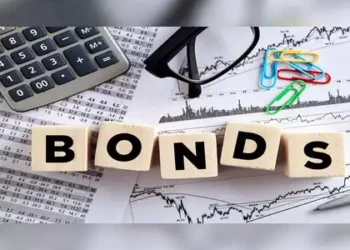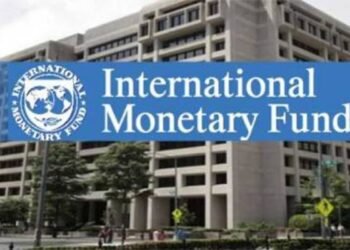In response to the faltering investor participation in recent treasury bills auctions, the Government of Ghana has marginally raised interest rates by 9 basis points—the first increase in nearly five months.
This development comes after the government failed to meet its treasury bills target for the seventh consecutive week, a worrying trend signaling waning investor confidence.
Speaking to Vaultz News, Mr. Isaac Kwesi Mensah, a seasoned market analyst and corporate finance expert at SIC Financial Services Limited (SIC-FSL), offered in-depth insights into the potential ramifications of this decision on the Ghana Stock Exchange (GSE) in the short term.
“The Trap is Set—and Government Walked Into It”
According to Mr. Mensah, the government’s move to increase interest rates to lure investors back to the short-term debt market may backfire, especially when viewed from the lens of capital market performance.
“Clearly, the trap is set and the government walked into it. We are witnessing the classic ‘investor’s trap. Investors, sensing the government’s desperation for liquidity, withheld participation to arm-twist the state into offering higher returns. Unfortunately, the government appears to have capitulated, and this spells trouble for the equity market in the near term.”
Mr. Isaac Kwesi Mensah
Mr. Mensah explained that raising yields on treasury instruments, even slightly, makes them more attractive compared to equities, especially in an environment where risk appetite remains subdued. “With inflation trending downward and the cedi showing modest stability, fixed-income investors see this as the perfect opportunity to secure relatively high, low-risk returns,” he stated.
A Shift In Portfolio Allocation
He warned that institutional investors, such as pension funds and insurance companies, could begin reallocating resources from the stock market to the more secure and now slightly more rewarding T-bills. “Any rise in government yields exerts immediate pressure on the stock market, particularly on stocks with low dividend yields or poor capital gains performance,” he noted.
The GSE, which has seen mixed trading sessions in recent weeks, may suffer declining volumes and valuations as a consequence, Mr. Mensah elaborated.
“Already, many stocks are struggling to attract meaningful trades. If interest rates continue to inch upward, we will likely see an exodus from equities to fixed income. It’s simple risk-return dynamics.”
Mr. Isaac Kwesi Mensah
The increase in the 91-day bill yield to 14.65%, along with a notable 25 basis point surge in the 364-day bill to 15.41%, comes at a time when investor sentiment is already fragile. According to Mr. Mensah, market liquidity could dry up in the short term if this trend persists.
“Liquidity is oxygen for stock markets. When it gets siphoned off by more attractive government securities, companies on the GSE may find it harder to raise capital, and existing shareholders may suffer capital erosion.”
Mr. Isaac Kwesi Mensah
He cited sectors such as banking, insurance, and manufacturing as potentially vulnerable to this shift, given that many listed firms are still recovering from previous economic shocks and rely on investor confidence for share price stability and capital raising efforts.

Medium-Term Repercussions
While the short-term outlook appears bearish, Mr. Mensah believes that the medium-term impact will depend largely on how the government balances its funding needs with macroeconomic stability.
“If this interest rate uptrend is contained, then the equity market could rebound. But if investor pressure continues to dictate monetary decisions, the government may soon find itself in a vicious cycle—raising rates, losing market confidence, and further undermining private sector growth.”
Mr. Isaac Kwesi Mensah
He, thus, urged the government to focus more on improving transparency in fiscal policy, reducing excessive borrowing, and ensuring efficient expenditure, rather than relying on rate hikes to solve short-term liquidity issues.
In the intervening time, the recent T-bill auction results tell a sobering story. Out of a GH¢7.525 billion target, the government managed to secure only GH¢6.12 billion in bids, accepting GH¢4.538 billion—representing a 22.82% shortfall. Notably, the 364-day bill saw the widest gap, with GH¢1.60 billion tendered but only GH¢100.99 million accepted, underscoring the government’s discomfort with locking in high-interest obligations for the long term.
In Mr. Mensah’s words final words, he cautioned the government not to succumb to investors pressures but to remain resolute.
“If the government continues to dance to the tune of short-term investors, it will undermine the broader capital market ecosystem and long-term development financing. The stock market cannot thrive in an environment where safe government securities crowd out productive risk.”
Mr. Isaac Kwesi Mensah
For now, all eyes are on the next few auctions. The government must tread carefully to avoid a scenario where, in trying to satisfy short-term borrowing needs, it destabilizes the country’s already delicate investment climate.
READ ALSO: Ghana’s Development Engine Sputters: ISSER Urges Bold Reforms in Land, Jobs, and Inclusion























